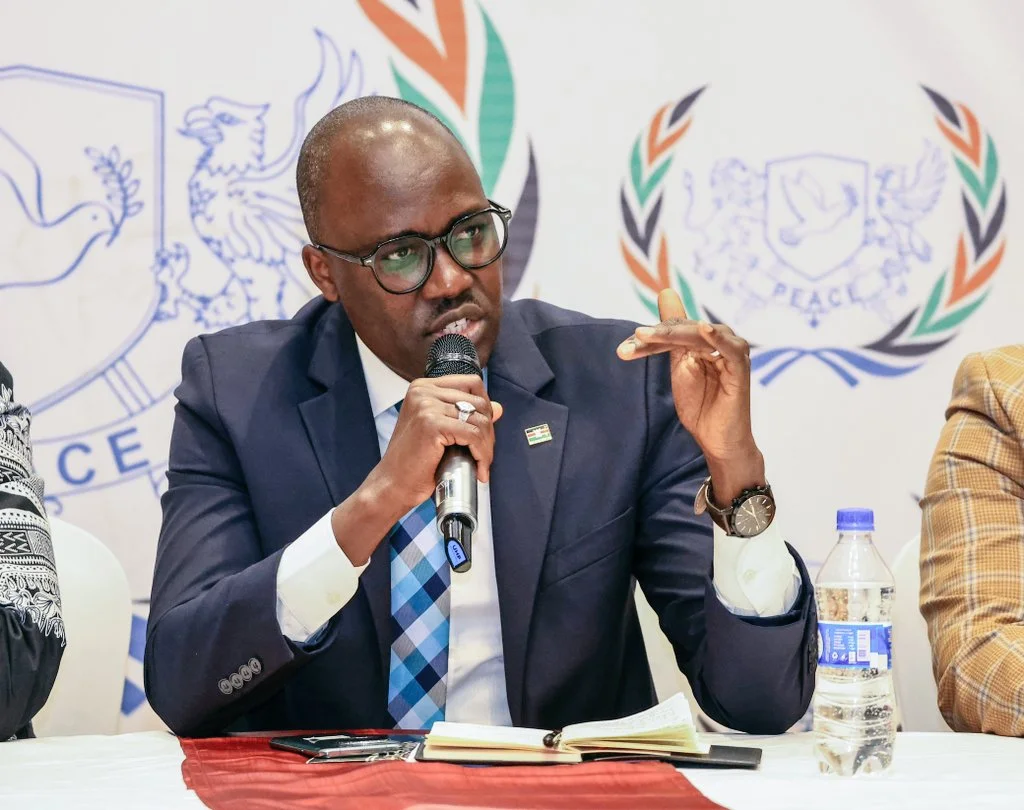Kenyan Foreign Affairs Principal Secretary Korir Sing’oei told diplomats in Nairobi that Kenya’s deportation of four UN-protected Turkish refugees was driven by its unwillingness to “harbor subversive elements” against Turkey, the Stockholm Center for Freedom reported, citing the Nation daily.
“One principle, the principle of non-interference on the internal affairs of another country, is a rock-solid principle that goes to the very founding of states,” Sing’oei said. He added that assurances were received from Turkish authorities regarding their treatment.
Sing’oei did not explain the nature of the “subversion” as the four individuals were residing in Kenya as refugees registered with the Office of the United Nations High Commissioner for Refugees (UNHCR) and working for organizations associated with the Gülen movement. There were no court cases against them in Kenya.
Turkish President Recep Tayyip Erdoğan has been targeting followers of the Gülen movement, inspired by US-based the late Muslim cleric Fethullah Gülen, since the corruption investigations of December 17-25, 2013, which implicated then-prime minister Erdoğan, his family and his inner circle.
Dismissing the investigations as a Gülenist coup and conspiracy against his government, Erdoğan designated the movement as a terrorist organization and began to target its members. He intensified the crackdown on the movement following an abortive putsch on July 15, 2016 that he accused Gülen of masterminding. Gülen and the movement strongly deny involvement in the coup attempt or any terrorist activity.
The four were kidnapped by armed individuals in the morning hours on October 18. Kenyan officials did not make any statements about the incident until three days later, when they finally acknowledged that they had been deported to Turkey.
Despite Sing’oei’s comments, critics question Kenya’s commitment to its policy of non-interference, pointing to a recent case involving the Democratic Republic of Congo (DRC). When the DRC requested Kenya’s assistance in deporting opposition figures allegedly seeking to destabilize Kinshasa, Kenyan officials refused, citing the country’s democratic values and freedom of speech.
President William Ruto staid at the time that Kenya “does not arrest people for making statements; we arrest criminals,” emphasizing that Kenya would not extradite individuals solely based on their political stance.
Kenya’s recent security cooperation with Turkey, including the sale of armed drones and police equipment, has also raised concerns over whether these ties influenced the decision.
Kenyan rights groups condemned the deportation, suggesting Kenya could have offered asylum in a third country under international refugee conventions. Human rights activists argue the actions contravene the 1951 Refugee Convention and African Union protocols that prohibit forced repatriation without consideration for the refugees’ safety.
Since the coup attempt Turkey’s National Intelligence Organization (MİT) has conducted operations for the forcible return of more than 100 people with alleged links to the Gülen movement. The latest cases include Koray Vural, a Turkish businessman who went missing in Tajikistan in September 2023 and was found to be in police custody in Turkey the next month. Emsal Koç, who also went missing Tajikistan in June 2023, was found to be in police custody in the eastern Turkish province of Erzurum when the police contacted his family living in the province.
According to a 2023 report by Freedom House on transnational repression, Turkey has become the world’s second most prolific perpetrator of transnational repression. A wide range of tactics used by the Turkish government against its critics abroad include spying through diplomatic missions and pro-government diaspora organizations, the denial of consular services and outright intimidation and illegal renditions.


